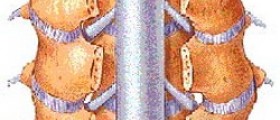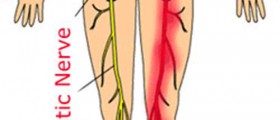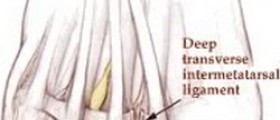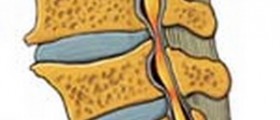
Symptoms that indicate pinched nerve
When surrounding tissues put too much pressure on a nerve, then such nerve is pinched. Since nerves are responsible for transmitting information from various body parts to the brain and the other way around, then this process is impaired and disrupted when the person experiences pinched nerve. However, which symptoms will be experienced depends on the nerve that is pinched, because this can happen in various parts of the body. For example, if some motor nerve is pinched, then the ability of muscles to contract or move might be disrupted, or, if some sensory nerve is pinched, this might affect our sense of touch, taste, or some others.
Still, in the majority of the cases, pain is inevitable sign of this problem. It can be sharp, it can be burning, and it might even be followed by coughing or sneezing, such as in case when the nerve in question comes right from the spinal cord. Besides pain, numbness in the affected area or the area that this nerve controls will also be present, as well as weakness of the muscles, or involuntary twitching. Tingling sensation is also quite common in cases of pinched nerves, and all the symptoms tend to worsen during night and while sleeping.
Injuries can easily cause pinched nerve, but poor posture, obesity and repetitive motions and actions due to some job or sport activity, for example, can also contribute or cause pressure to the nerve. Besides, there is a number of health issues and diseases that can cause it as well.
Methods of treatment for pinched nerve
First of all, there is no reason for the person in question to visit the doctor right away, because this problem usually goes away after a few days and without any medical treatment. All a person needs is enough rest, but it is also important to stay away from the activities that might worsen the problem and increase the compression. It might be necessary to immobilize the affected area, which is usually done with splints or braces. Medications such as pain relievers and corticosteroid injections are suggested when the pain and/or inflammation need to be reduced. In some cases, the surgery might be the only way to take off the pressure, but this is only typical of cases in which the symptoms do not improve or disappear after a few weeks or even months.














-Causes,-Symptoms,-Diagnosis,-Treatment_f_280x120.jpg)


Your thoughts on this
Loading...